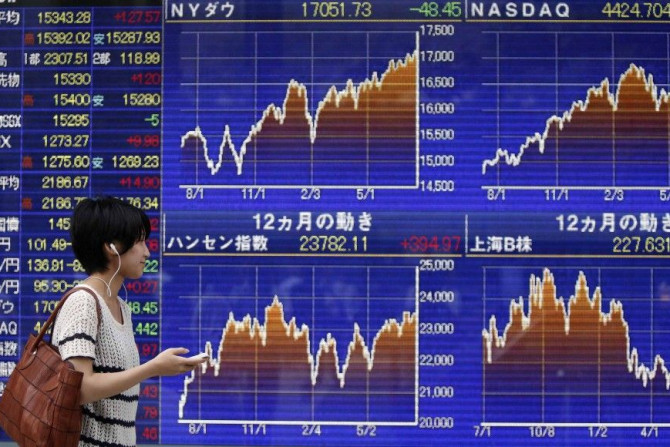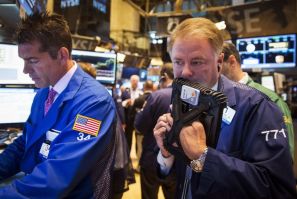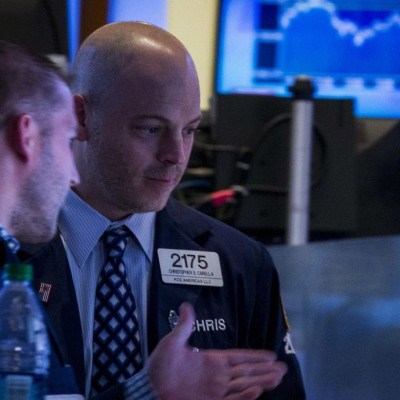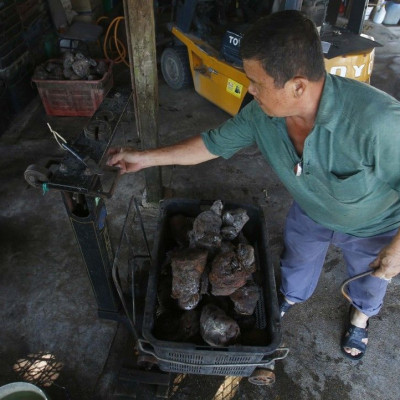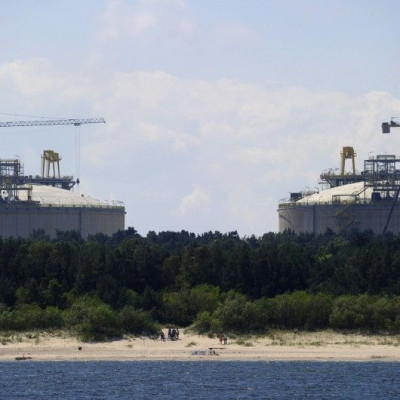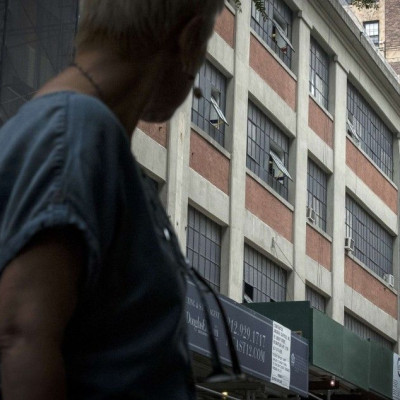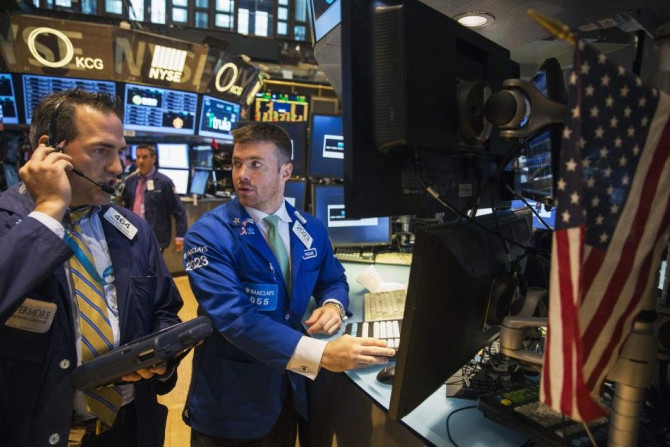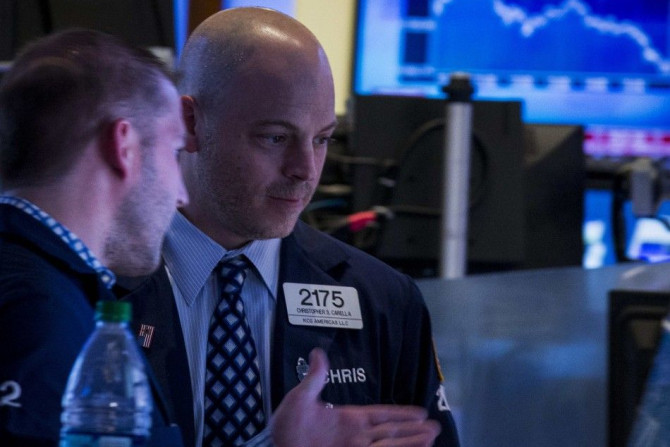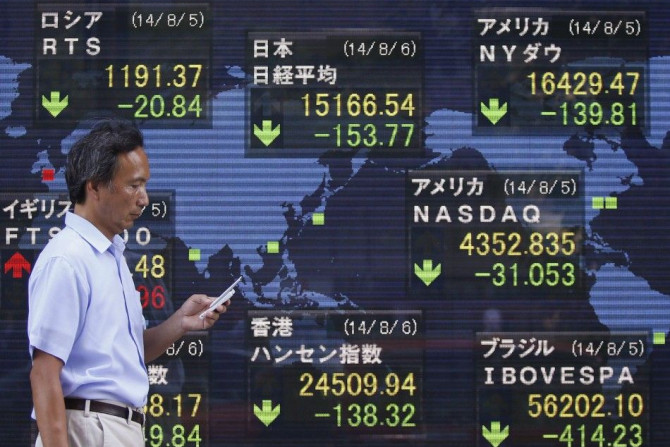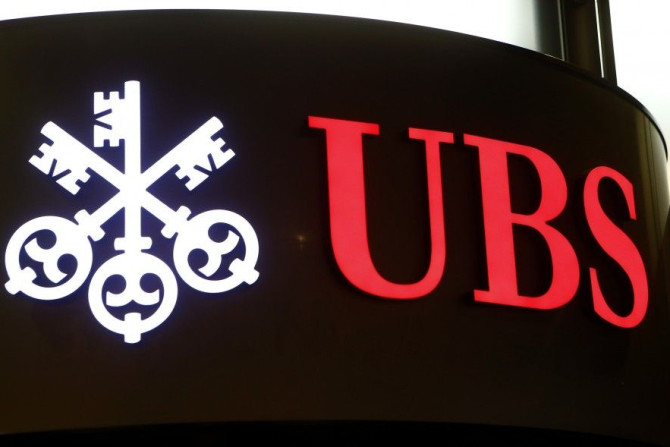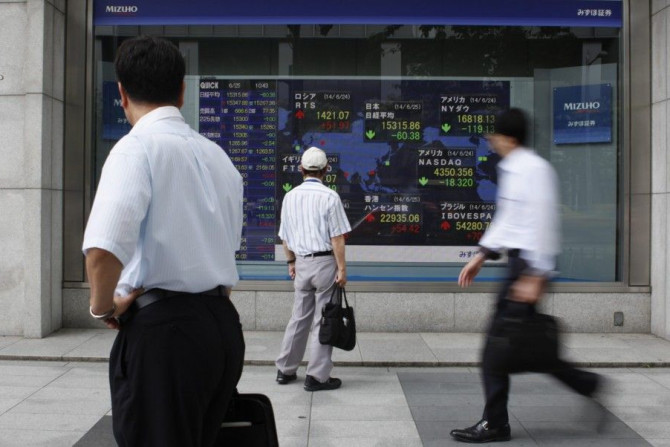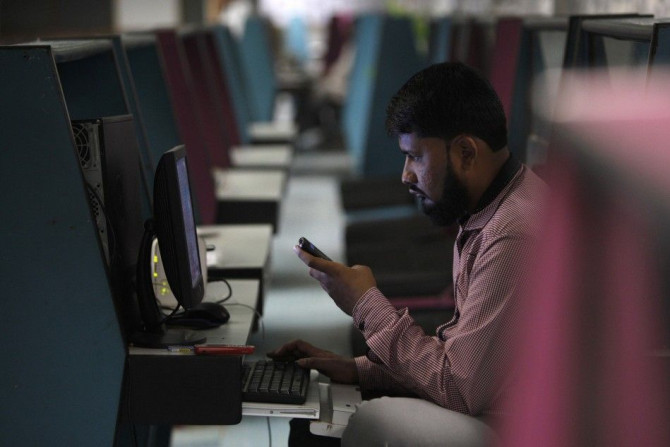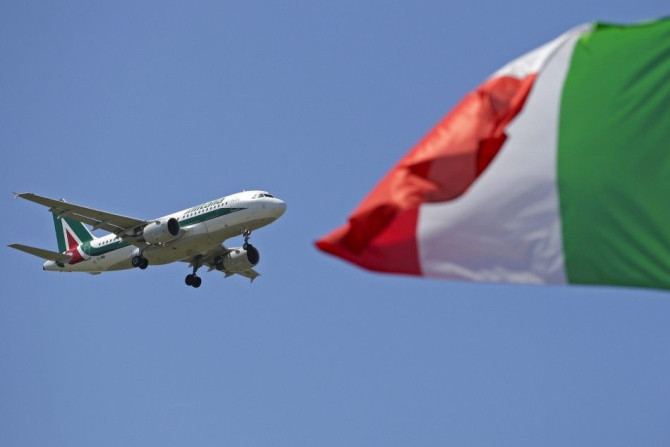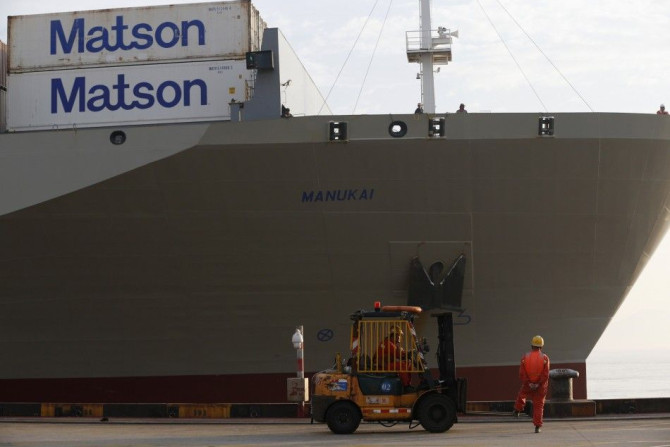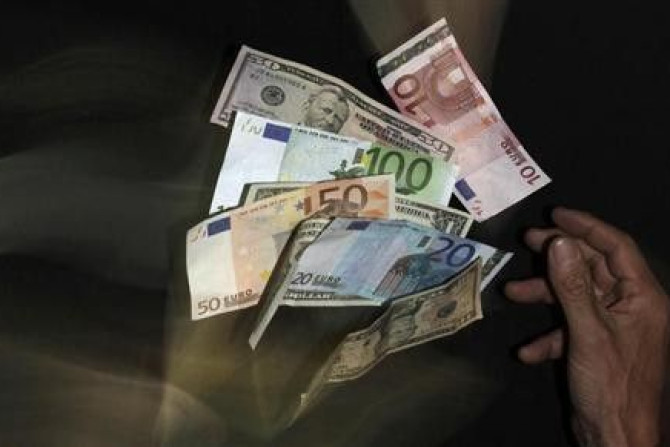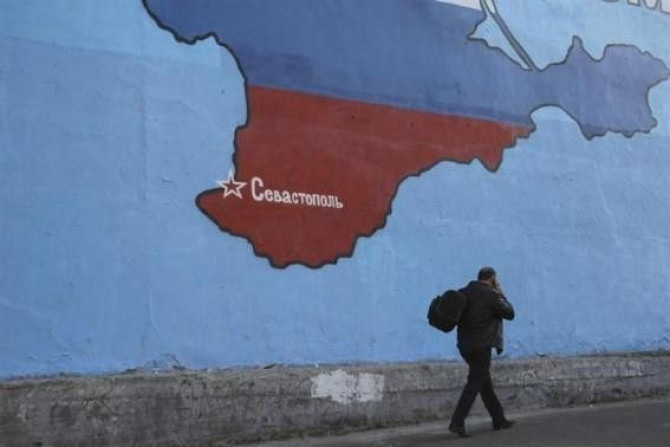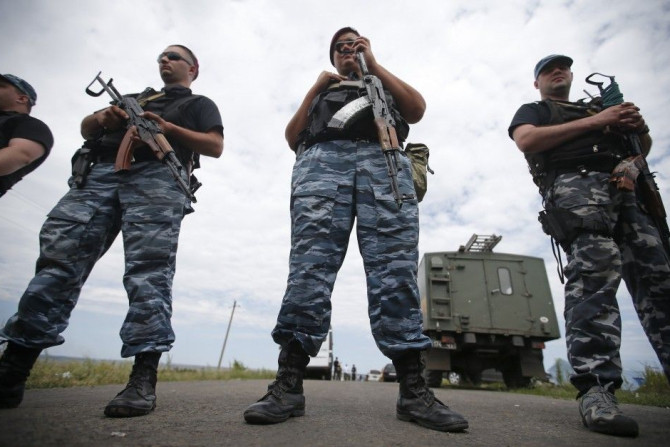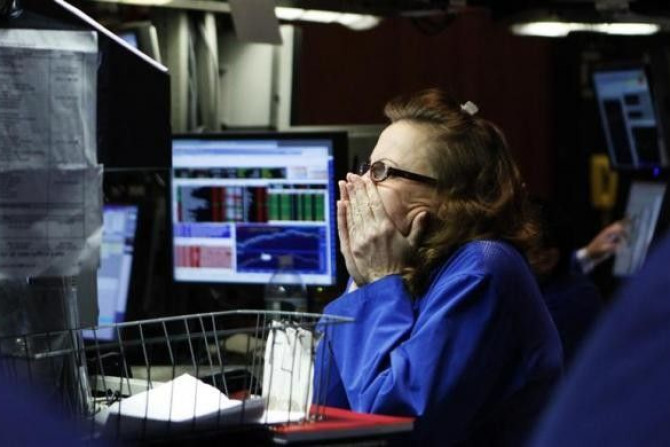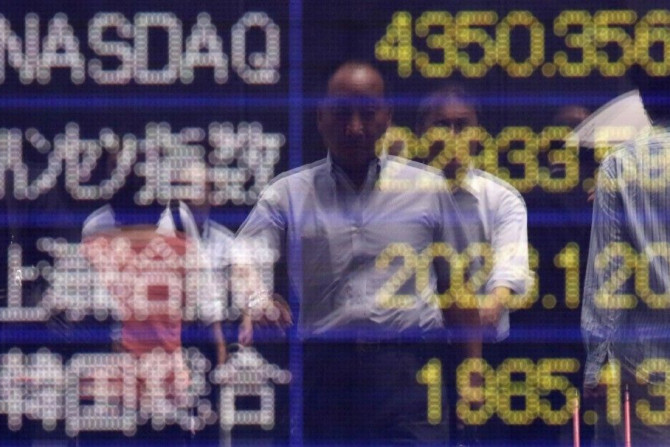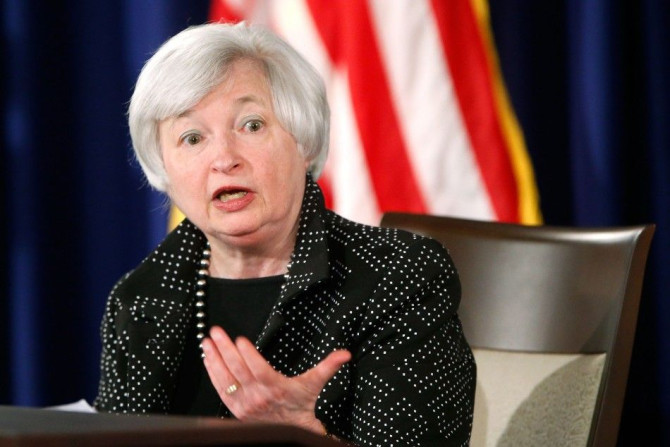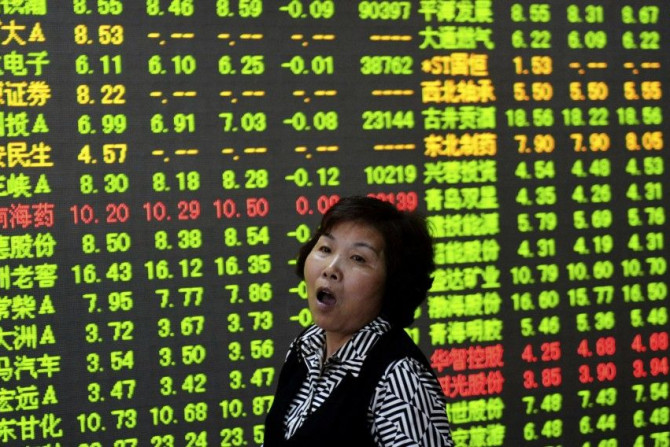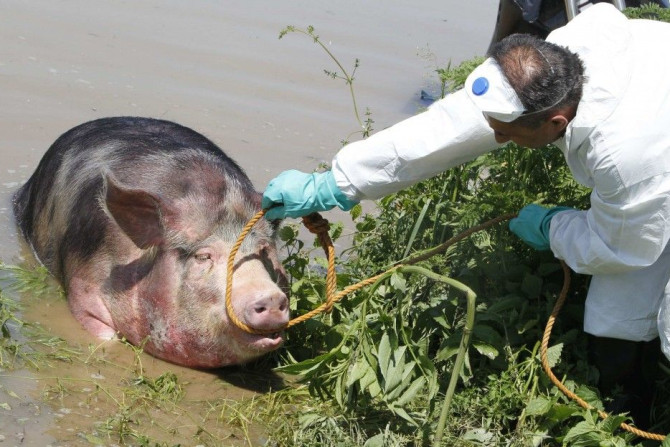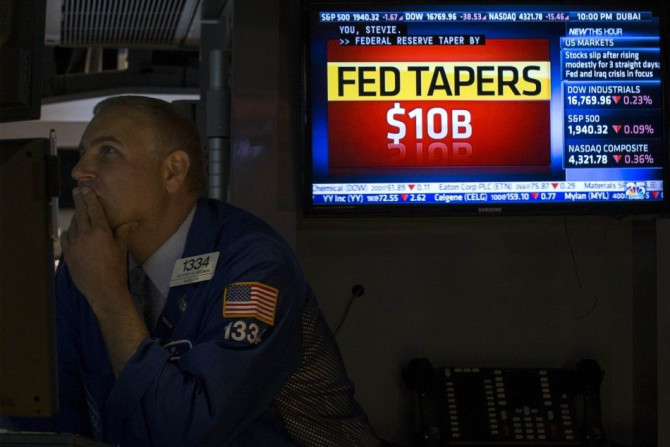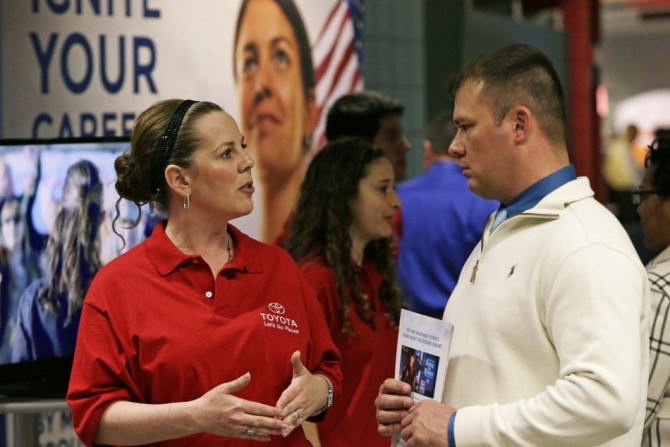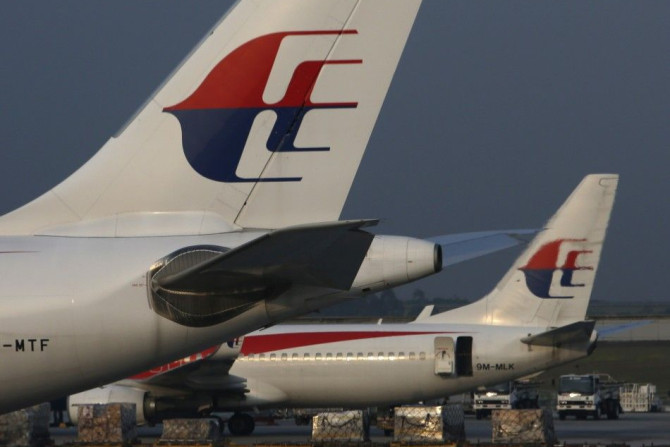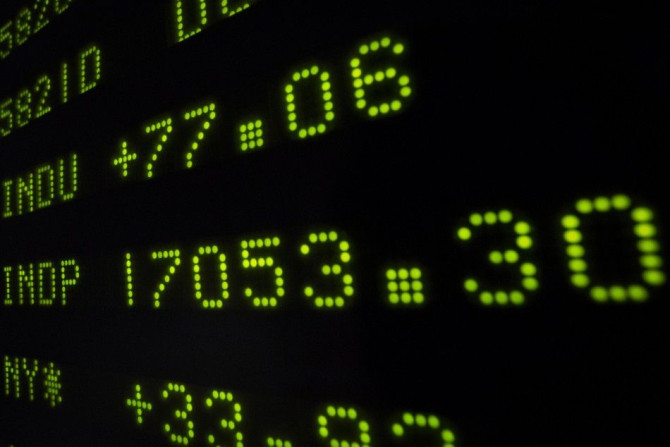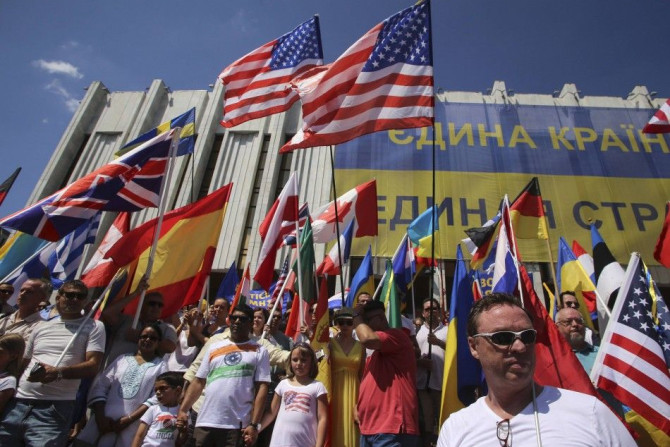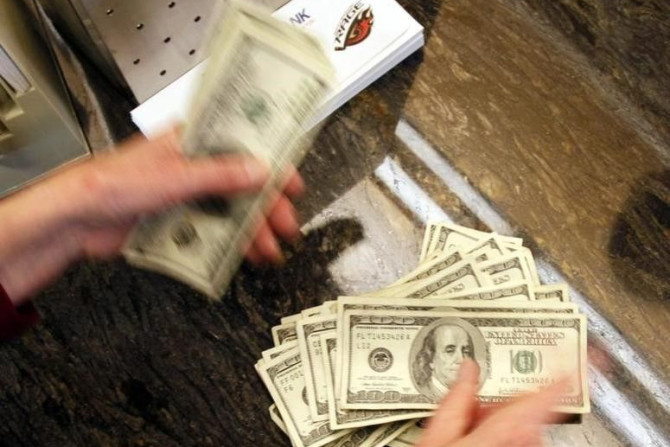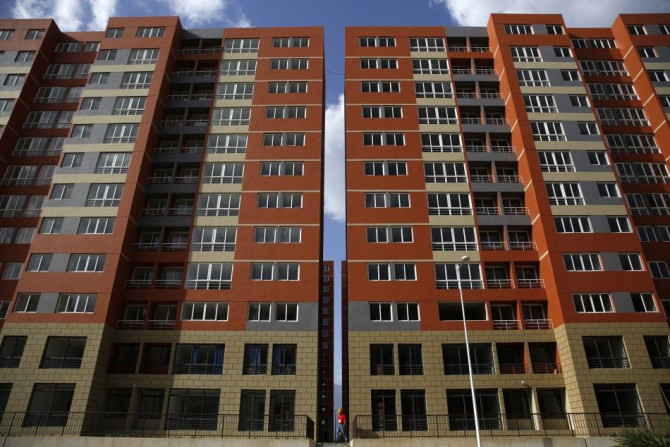There is some link between a surge in Google searches for political and business topics to stock market crashes, according to a study by Warwick Business School.
Yesterday Russia imposed sanctions on the EU and US around agricultural products, and overnight it has widened its reach to include Canada, Norway and Australia.
In US economic data, consumer credit rose by a less than expected $17.26 billion to $3.21 trillion in June. Revolving credit, which mostly measures credit-card use, increased only $941.54 million after a downwardly revised $1.74 billion in May- it was still the fourth consecutive monthly increase. US jobless claims fell by 14,000 to 289,000 last week.
The Australian sharemarket fell for the fifth day; its longest losing streak in eight months. Weaker than expected employment figures and falls in European markets overnight were drivers. The All Ordinaries Index (XAO) fell by 0.1 per cent; however managed to close just above a key level at 5500.7.
Risks of an impending housing bubble are threatening Switzerland's real estate market following mortgage and property price jumps during the second quarter that surpassed economic growth, Bloomberg said in a report.
Another tough day for the Aussie markets, we saw the ASX 200 started only slightly weaker off 2pts. But by 11.25am the markets had fallen back by 14 points and just after the release of the weaker than expected July Jobs numbers the market lost more ground now down 18.6 points.
Sellers continued to apply pressure to the ASX 200 over the course of the afternoon on Wednesday. So far this week the index has shed just over 0.8 per cent having lost half a per cent last week.
Russia has responded to EU and US sanctions by placing heavy restrictions on food imports from countries that have imposed sanctions on Russia over the past few months.
In US economic data, the trade deficit narrowed by 7% to $41.5 billion in June. The smaller deficit was driven by a fall in petroleum imports to a 3 year low. Analysts had expected the trade deficit to widen.
Top 10 Sports Illustrated First-Ever Fittest 50 Athletes; Roger Federer, Rafael Nadal, Georges St-Pierre Also Make the Cut
Temperatures continue to rise in Oakland's already hot real estate market due to cash buyers, the Oakland Local reported. According to the report, real estate practitioners saw a great deal of cash transactions in the market, compared with similar activities more than a decade earlier during the U.S. housing bubble.
The weakness continues this month, with the Australian market slipping for the fourth day following softer American shares overnight. The All Ordinaries Index (XAO), which is a measure of local market performance is down by 0.3 per cent and is trading below 5500pts for the first time in three weeks. Geopolitical risks in Ukraine and Russia continue to keep investors on edge, with reports of an increase in Russian troops on Ukraine's border.
Markets overnight were moving along in a fairly routine fashion, after having seen slightly positive data from Europe and the US. This lead to Europe recovering from four days of losses and the US market moving slightly in the red after having rallied on Monday.
Transport operators would often downplay accidents involving their vessels, coaches or jets, especially near misses, but in the case of a Singapore Airlines Flight SQ351, it was Singaporean Transport Minister Lui Tuck Yew himself who admitted it was only minutes away from suffering the same fate as Malaysia Airlines Flight MH17 which was hit by a missile and crashed with all 298 people on board.
The Australian sharemarket lost ground for the third day despite a strong performance from US shares overnight. The All Ordinaries Index (XAO) fell by 0.4 per cent; however is still only 2 per cent away from revisiting the six-year highs reached late last week.
Despite disappointing results from Boeing and other companies, the U.S. stock market logged record-high earnings due to positive earnings from technology firms.
There was a solid recovery in US markets overnight, however this is not surprising considering the profit taking and reactions to 'good news is bad news' that resulted in falls last week.
The winning streak continued with shares hitting fresh six-year highs, rising for a third day and remaining above the key 5600pt level. The All Ordinaries Index (XAO) improved by a modest 0.1 per cent despite mixed performances from global markets overnight. The US economy expanded at a faster than expected 4 per cent annual pace in the June quarter, while comments by the US central bank relating to inflation has increased the market's expectations of an earlier rate rise.
Retail investors were among those who were attracted to the Hong Kong initial public offering (IPO) of Chinese pork producer WH Group on Tuesday, July 29. WH raised $2.05 billion in its second attempt at IPO, reported The Wall Street Journal.
The Fed's view being proven correct. Over the weekend, the non-farm payrolls showed over 200,000 jobs were created, however part-time employment is leading the way and wage inflation is stagnant at best. Average hourly earnings month-on-month fell to 0%, and unemployment rose with participation still sitting near 1977 levels.
In US economic data, non-farm payrolls (employment) rose by 209,000 in July, just short of forecasts tipping a 233,000 lift in jobs. The unemployment rate rose from 6.1% to 6.2%. Personal income rose 0.4% as expected in June. The ISM purchasing managers index rose from 55.3 to a 3-year high of 57.1 in July, above the forecast of 56.0.
The timely intervention of Air Services Australia saved a Malaysia Airlines jet last week from a possible hit by a Tiger Airways.
A channel war is brewing in the TV sector of New Zealand, with new challenger Telecom announcing its intent to take on the entrenched contender Sky TV with streaming videos.
Trading at the Shanghai Stock Exchange will remain from 9:30 to 11:30 am and 1 to 3 pm. The Chinese bourse has little chance of extending its trading hours to match Hong Kong's, which ends at 4 pm and has just a one-hour lunch break from 12 noon to 1 pm.
Despite pulling back a touch from the highs reached at midday, the Australian market still managed to close at a fresh six-year high. The All Ordinaries Index (XAO) rose by 0.6 per cent and improved for the 12th time in 16 trading sessions. With only one day remaining this month, local shares have surged by 4.3 per cent in July; making it the best month in a year for the Australian market.
Investors initially kicked off the session a little hesitant ahead of major updates on both the US and Chinese economies over the next few days. Caution has been set to one side however; with the All Ordinaries Index (XAO) cracking through 5600 points for the first time since June 2008.
The International Civil Aviation Organisation (ICAO) has said it will be creating a task force on airline safety in light of the fatal downing of Malaysia Airlines MH17 over war-torn Ukraine. This, as the global aviation industry rallied that governments must relay or share intelligence information to avert future incidents on flying over war-zone declared areas.
The week has been building to today's macro events with Washington taking centre stage; however I do need to concentrate on the developments overnight.
Major currencies were softer against the US dollar on Tuesday ahead of the Federal Reserve decision. The Euro fell from highs near US$1.3445 to US$1.3405, before ending US trade near US$1.3410. The Aussie dollar fell from highs near US94.05c to lows near US93.75c before ending the US session near US93.80c. And the Japanese yen eased from 101.85 yen per US dollar to JPY102.15, ending US trade near JPY102.10.
Long Beach's real estate market is pricing out home buyers with limited budget, according to a report by the Press Telegram.


